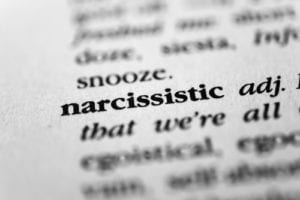Narcissists are self-involved and thrive on bringing everyone around them down in order to build themselves up. Despite any other indication, their effort to do so is not actually vindictive, though many of their behaviors will be. Adults who are narcissists typically grew up in a household where adults where narcissists and the pattern can be traced back. Crippling low self-esteem drive the narcissist to exact their own childhood revenge on their children, tying the way they love and validate their children into an extension of themselves. Rather than love and appreciate children for the unique individuals that they are, a narcissistic parent uses shame, guilt, anger, humiliation, and manipulation to try and turn children into who the narcissistic parent wants them to be. As a result, children who are raised in a narcissistic home grow up understanding that love is conditional. If you satisfy the narcissistic parent, you might earn their love and adoration. If you don’t, you won’t’.
Lack of confidence
Not knowing whether or not actions, behaviors, and even just the fabric of who you are as individual will be “worthy” of your parent’s love and affection is not confidence boosting. Confidence is defined as “the feeling or belief that one can rely on someone or something”. What a child growing up in a narcissistic home believes is that they cannot rely on who they are or what they do to bring love into their lives. Ongoing, they might reproduce patterns of the relationship with the narcissistic parent in relationships where they are not appreciated, acknowledged, loved, or treated well. Their lack of confidence in themselves manifests through creating unreliable situations where love cannot be relied on- the child raised in the narcissistic home has no reason to believe that love can be relied on.
Feelings of unworthiness
As a noun, worth can be defined as “the level at which someone or something deserves to be valued or rated.” Growing up in the narcissistic home, a child doesn’t know that they have worth because they aren’t being valued. They aren’t being told that they have value because their value is only being defined by the conditional love presented by their narcissistic parent. When there is no love being present, there is criticism, which takes away their value.
Substance abuse and mental illness
Coping with the conditional love of the narcissistic home is challenging and traumatizing. Many children who grow up in a narcissistic home, can grow into adults who are prone to develop mental illness, substance use disorders, and other complications.
If you are struggling with narcissistic personality disorder and its affecting your children, or you are struggling to cope with your childhood growing up with a narcissistic parent, healing is possible. Avalon By The Sea offers certified primary mental health treatment in addition to dual diagnosis substance use treatment. Our residential treatment programs are trusted to provide trusted results which show healing in mind, body, and spirit. For a confidential assessment and more information, call us today: 888-958-7511












